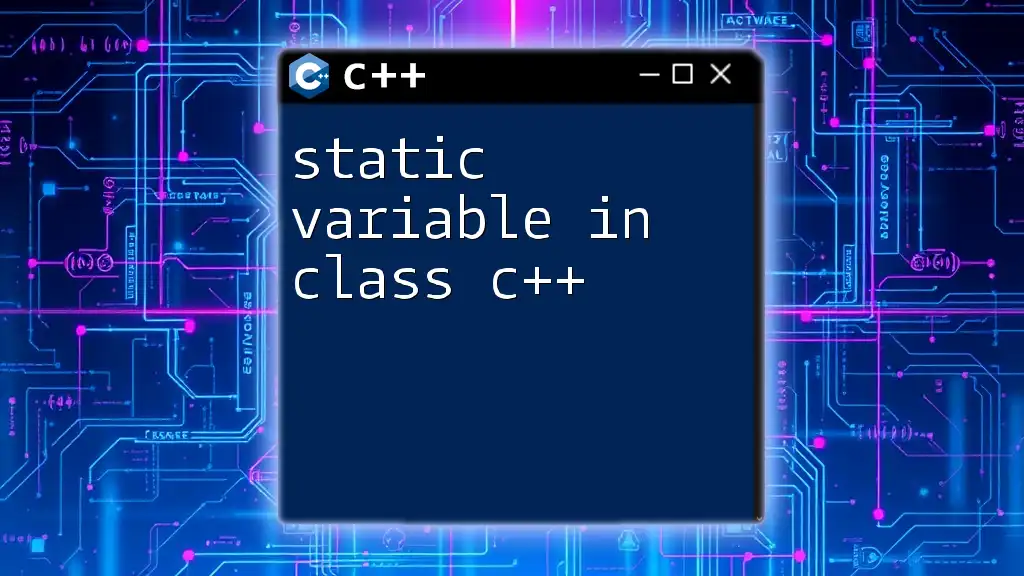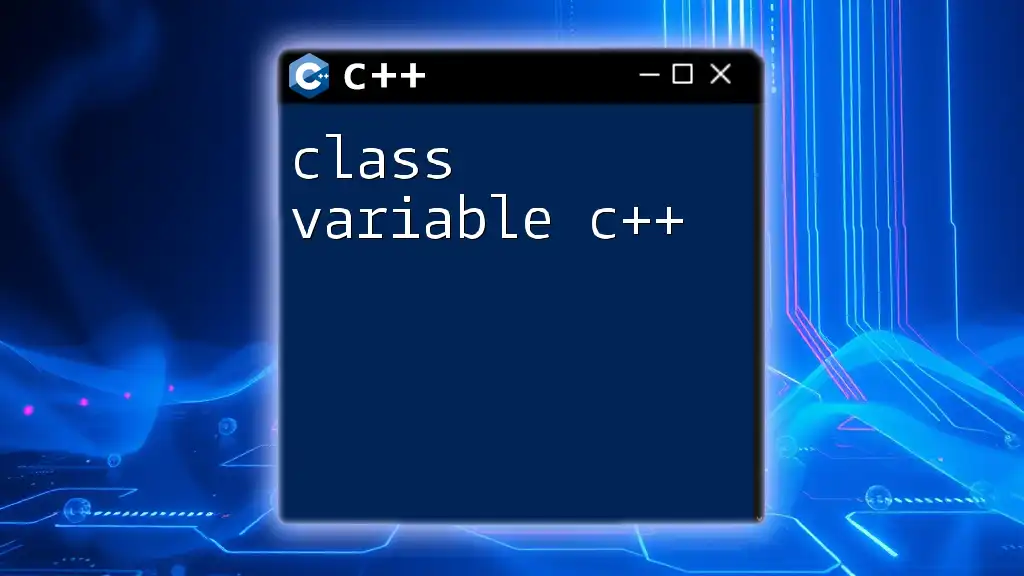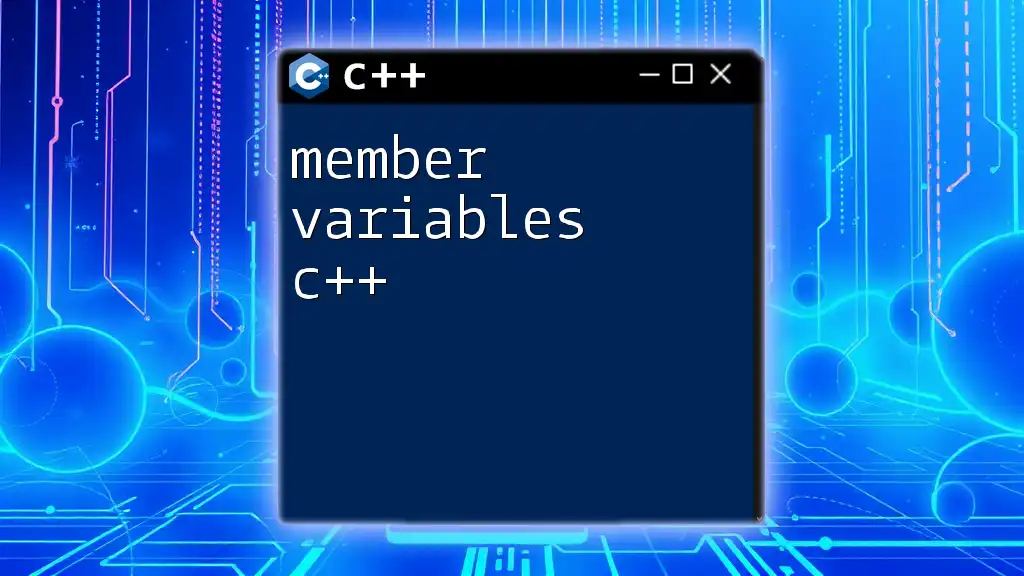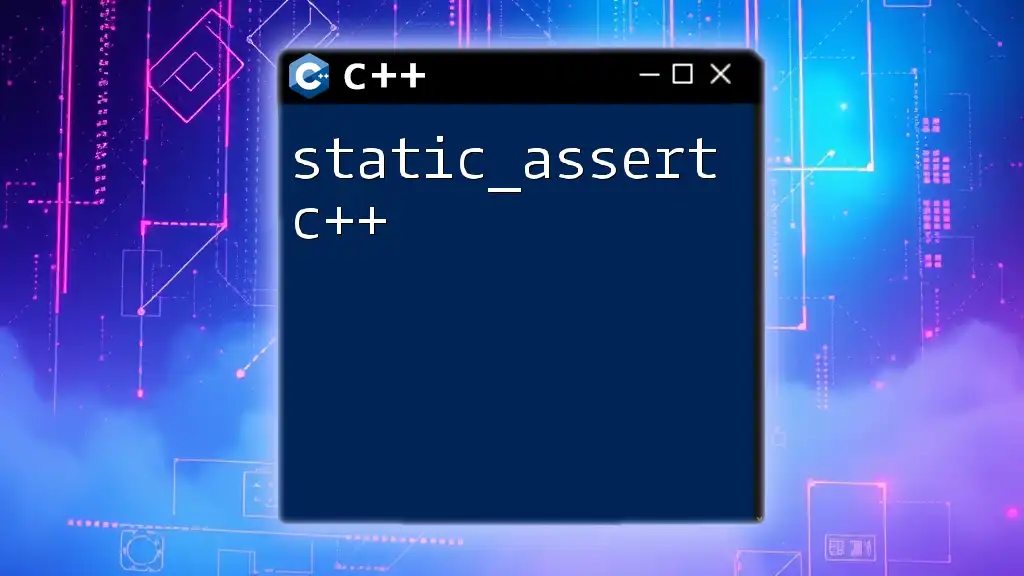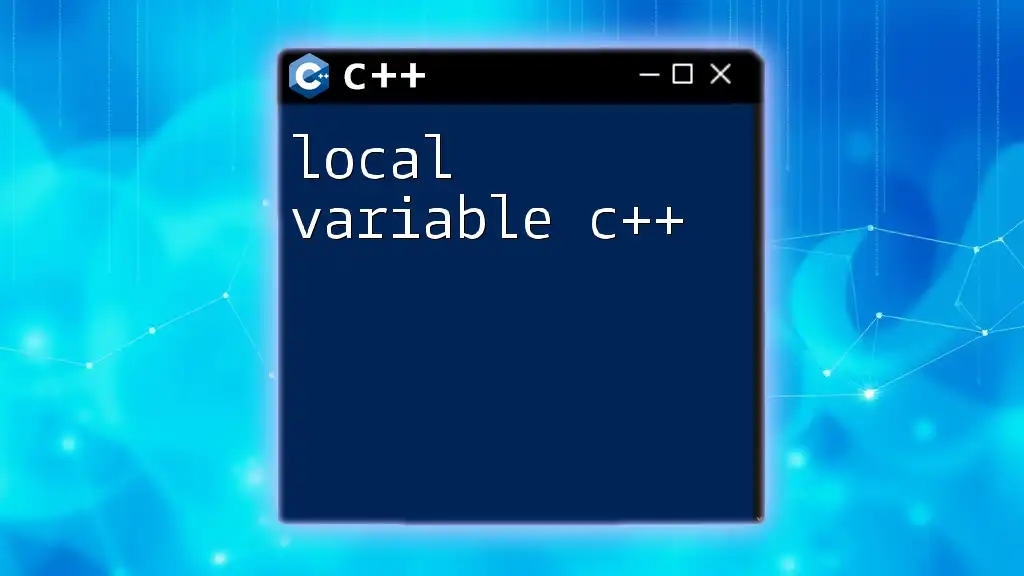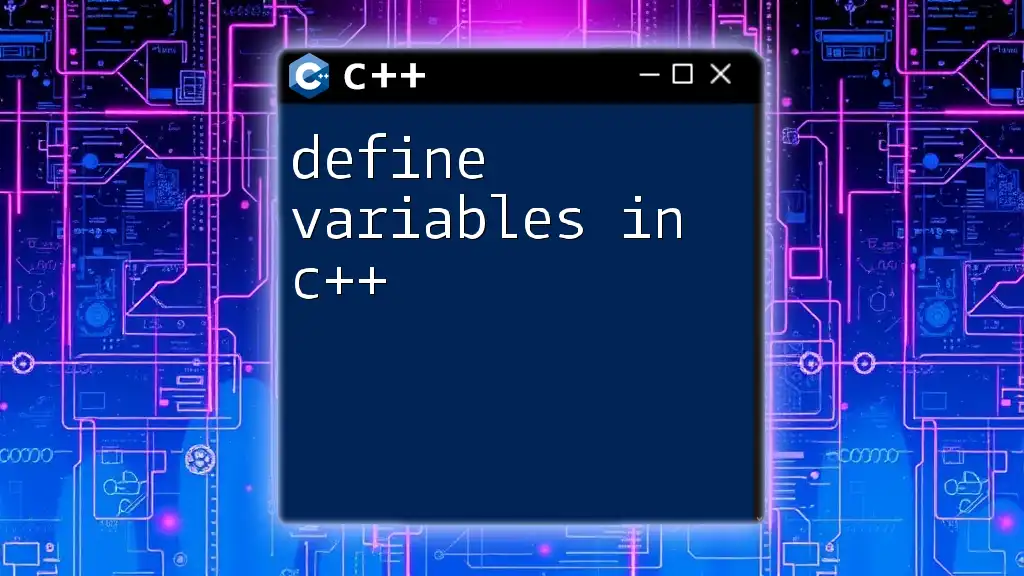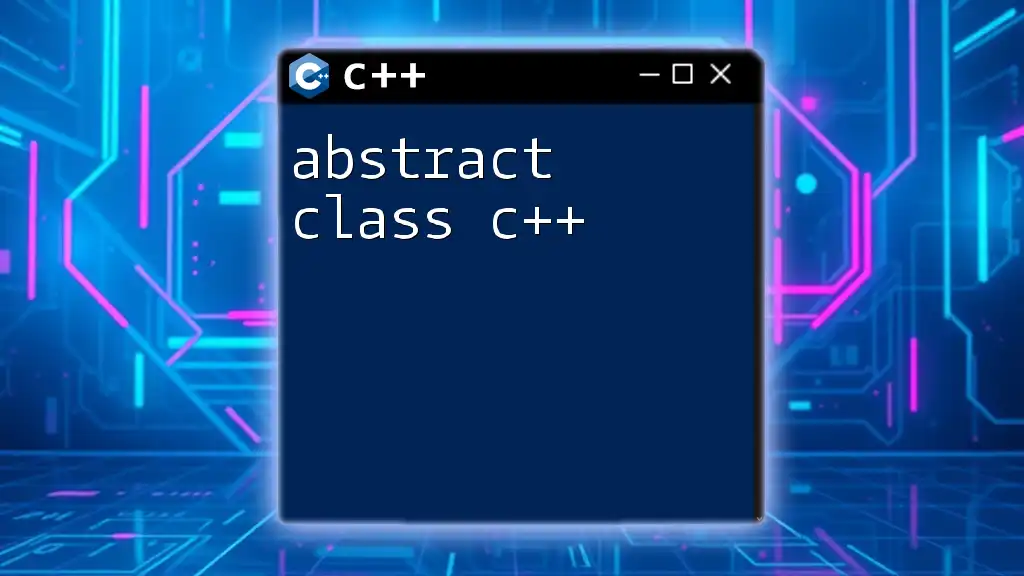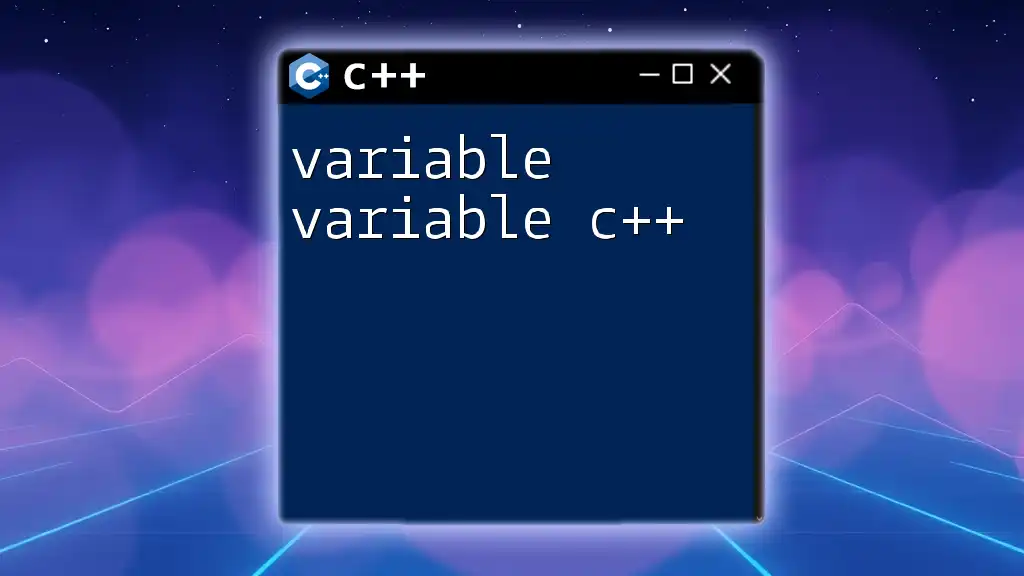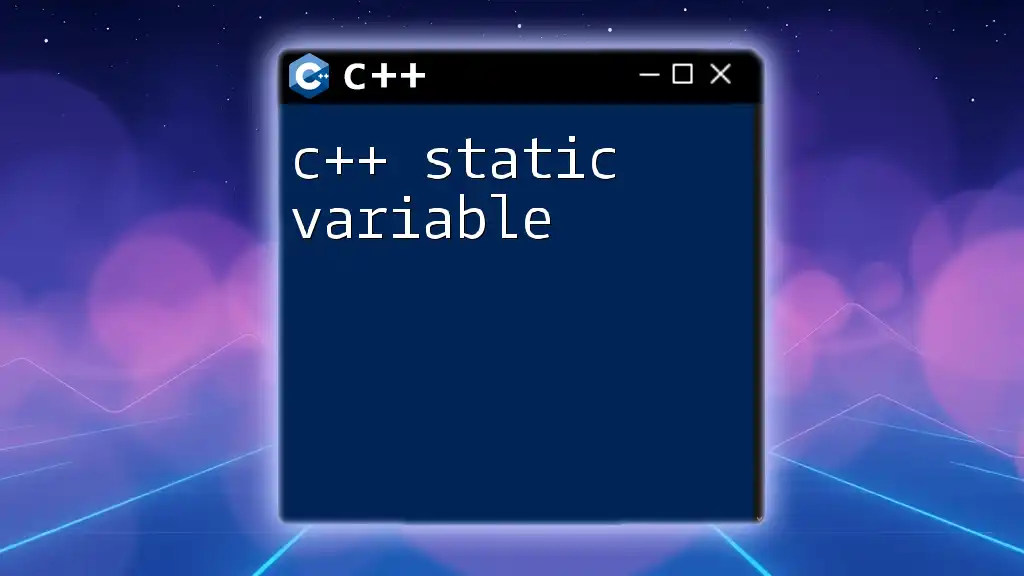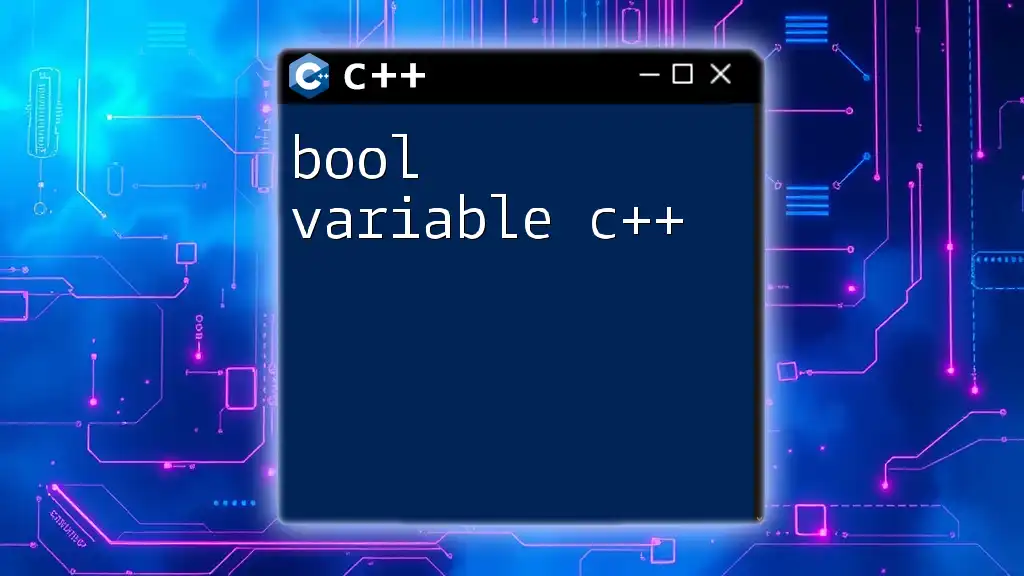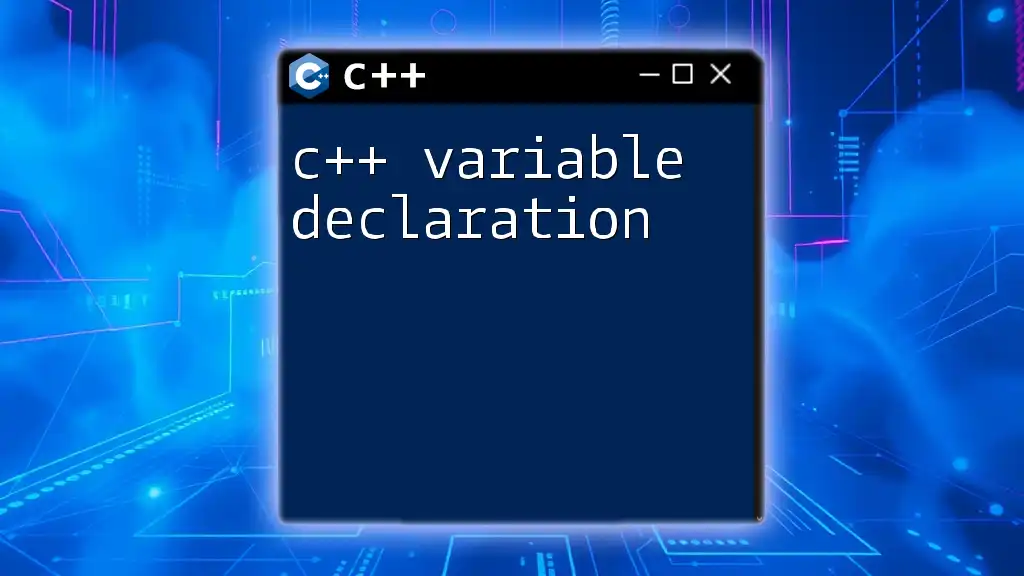In C++, a static variable in a class maintains a single shared instance for all objects of that class, allowing it to retain its value between function calls and object instances.
#include <iostream>
class Example {
public:
static int count; // Declaration of static variable
Example() {
count++; // Increment count for each object created
}
static void displayCount() {
std::cout << "Count of objects: " << count << std::endl;
}
};
int Example::count = 0; // Definition of static variable outside the class
int main() {
Example obj1;
Example obj2;
Example::displayCount(); // Outputs: Count of objects: 2
return 0;
}
Understanding Static Variables in C++
What are Static Variables?
In C++, static variables maintain their values between function calls or across instances of a class. While a typical variable is reinitialized every time its scope is entered, a static variable retains its value even after its scope goes out of context. This ability contributes to its significance in various programming scenarios, especially when managing shared data.
Scope and Lifetime of Static Variables
The scope of a variable defines where in the code it can be accessed, while the lifetime dictates how long that variable retains its value.
-
Scope: Static variables have a scope limited to the block they are defined in; however, their lifetime extends throughout the program’s execution.
-
Lifetime: Unlike regular variables, which are destroyed once they go out of scope, static variables are created once and exist until the program ends.
Understanding the scope and lifetime of static variables is crucial for ensuring they perform their intended functions effectively without leading to unintended side effects.
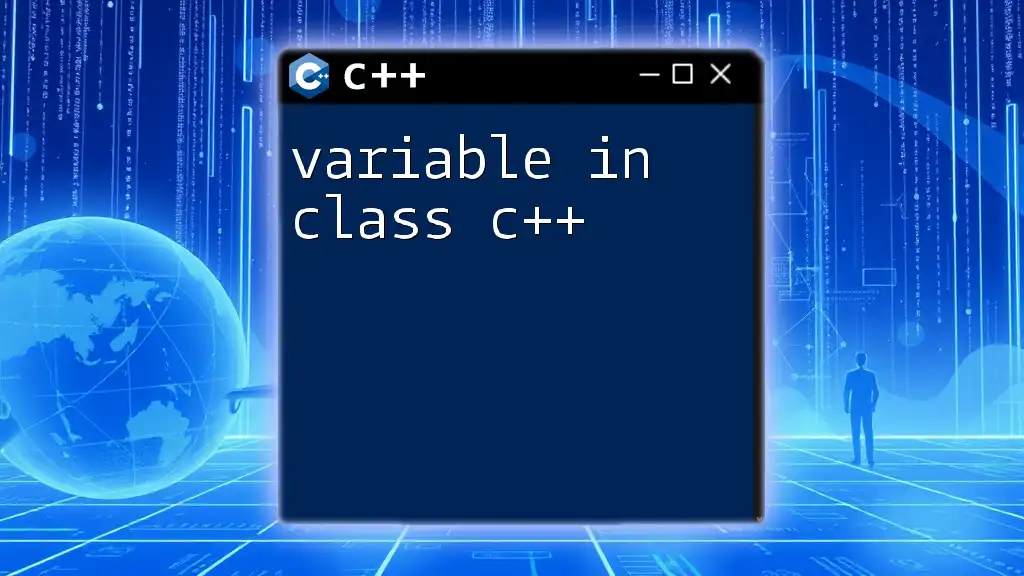
C++ Static Variable in Class
Defining Static Variables in a Class
To declare a static variable within a class, you follow a specific syntax. The keyword `static` indicates that the variable will not be tied to any particular instance of the class.
Here’s a basic example illustrating how to define a static variable within a class:
class MyClass {
public:
static int staticVar; // Declaration of a static variable
};
Initialization of Static Class Variables
While declaring a static variable is necessary, initialization is equally important. Unlike regular class member variables, static variables cannot be initialized within the class body. Instead, you must initialize static members outside the class definition.
Here’s how you can initialize a static variable:
int MyClass::staticVar = 0; // Initialization outside the class
By doing this, you're ensuring that `staticVar` is a single memory location shared among all instances of `MyClass`.
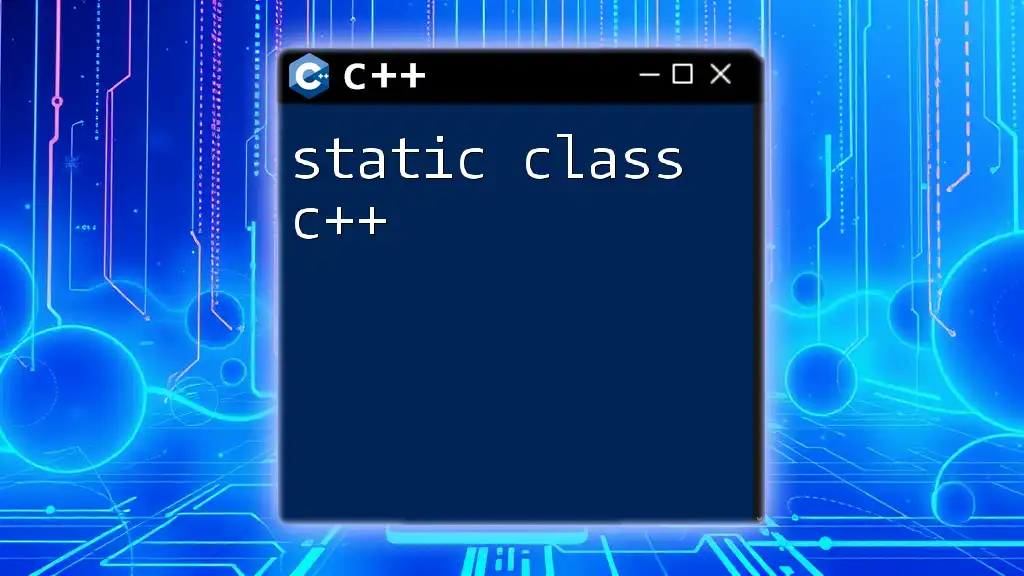
Benefits of Using Static Variables in C++
Memory Efficiency
Static variables hold significant advantages in terms of memory management. Since a static variable exists in a single memory location rather than being duplicated for each instance, it promotes memory efficiency. This can lead to better performance, especially in applications that create many instances of a class.
Shared Data Across Instances
Another major benefit of static variables is their ability to facilitate shared data across instances. Any instance of a class can access the static variable without needing to create a new instance explicitly. This feature minimizes redundancy and enhances data integrity.
Consider the following example:
class Counter {
public:
static int count; // Static variable to count instances
Counter() { count++; } // Increment count in constructor
static void displayCount() {
std::cout << "Count: " << count << std::endl;
}
};
int Counter::count = 0; // Initialization of static variable
In this example, every time a `Counter` object is instantiated, it increments the shared `count` variable. You can call the static method `displayCount()` on any instance to see the cumulative number of created `Counter` objects.
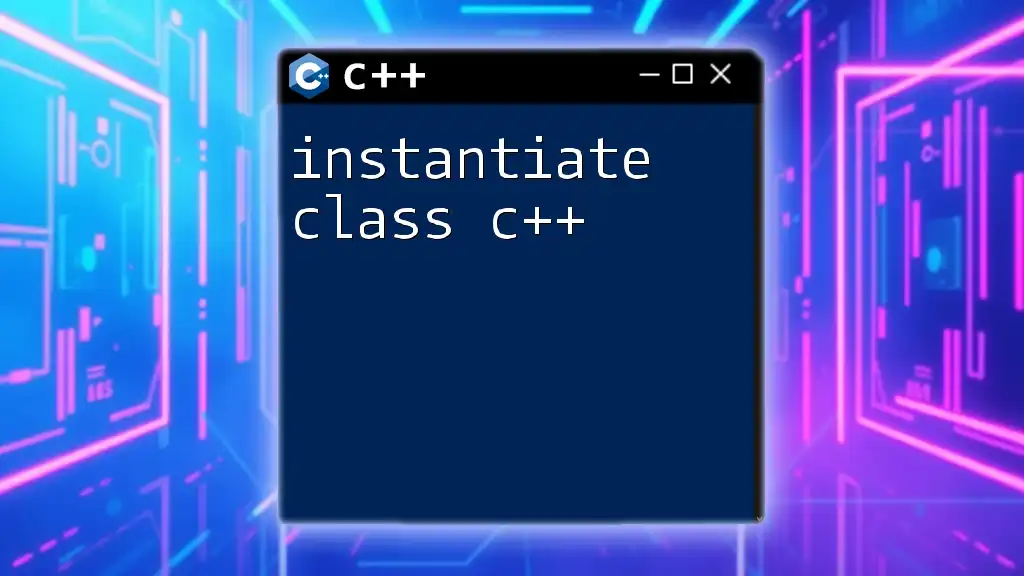
Class Static Variable C++: Pros and Cons
Advantages
- Memory Savings: Since static variables do not consume additional space for each class instance, they are memory efficient.
- Data Persistence: Static variables retain their value even when instances are destroyed.
- Simplified Access: You can access static variables without instantiating the class.
Disadvantages
However, there are potential downsides to consider:
- Unintended Side Effects: If multiple threads modify a static variable, unpredictable behavior can arise.
- Reduced Encapsulation: Static variables, being accessible to every instance, can hinder the encapsulation principle, potentially leading to tight coupling.
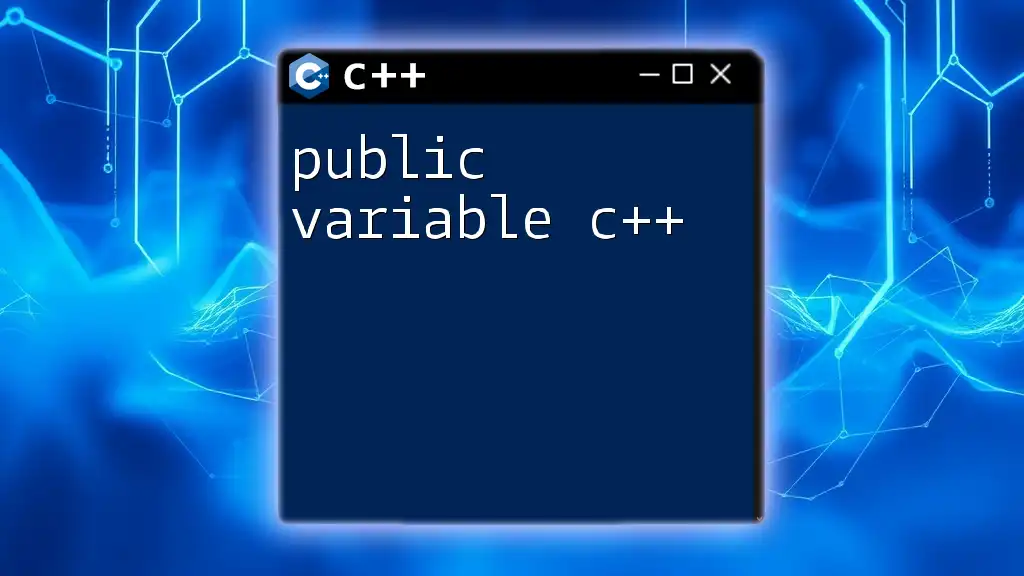
Best Practices for Using Static Class Variables in C++
When to Use Static Class Variables
Static class variables are beneficial when you want to maintain a global count, shared configurations, or any data that should be consistent across all instances. They are particularly useful in scenarios such as singleton patterns, where a single instance is needed across an application.
Common Mistakes to Avoid
To ensure effective use of static variables:
- Misunderstand the Lifetime: Always remember that static variables are not destroyed after the function or instance ends; they persist until the program completes.
- Overuse Leading to Complexity: Relying heavily on static variables can complicate code maintenance and readability. Use them judiciously.

Example Scenarios Utilizing C++ Static Class Variable
Example 1: Counter Example
Let us revisit the `Counter` class to understand its working in detail. Every time an object of the `Counter` class is created, the static variable `count` increments. A sample output of the following code would illustrate how `count` reflects the total number of instances.
int main() {
Counter a;
Counter b;
Counter c;
Counter::displayCount(); // Output: Count: 3
return 0;
}
Example 2: Configuration Settings
Static variables can also be employed to manage configuration options that should be consistent across various instances. Here’s how you can implement a configuration manager using static class variables:
class Config {
public:
static std::string setting1;
static void setSetting(const std::string& value) {
setting1 = value;
}
};
// Implementation
std::string Config::setting1 = "Default"; // Static member initialization
By setting `setting1`, you adjust the configuration for all instances of `Config`, achieving centralized management for your settings.
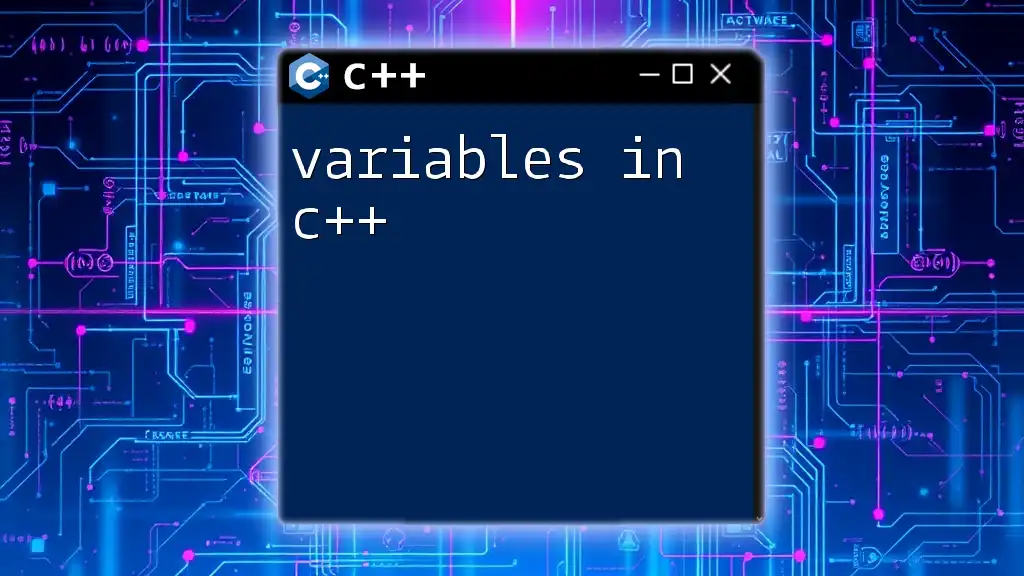
Conclusion
Summary of Key Points
In this comprehensive guide on static variable in class C++, we explored the core functionality of static variables, their benefits, potential drawbacks, and practical applications. Understanding how static variables work within classes can significantly enhance your programming skills and the efficiency of your applications.
Learn More About C++ and Static Variables
To dive deeper into C++ and explore more advanced topics, consider experimenting with static variables in various programming scenarios. This hands-on experience will further solidify your understanding and mastery of the language.

